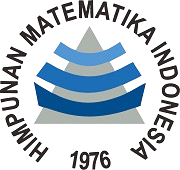Development of Student Worksheets Using The Missouri Mathematics Model with Peer Feedback on Linear Programming Material
DOI:
https://doi.org/10.30736/voj.v7i2.1217Keywords:
Student worksheet, Missouri Mathematics Project Model, Peer FeedbackAbstract
This study aimed to develop a valid, practical, and effective student worksheet (LKS) for linear programming material based on the Missouri Mathematics Project (MMP) model with peer feedback. Using a Research and Development (R&D) design comprising definition, design, development, and dissemination stages, data were collected through validation sheets, questionnaires, and tests. The developed worksheet was assessed as valid by experts 80%, practical based on student and teacher responses 85%, and effective in improving learning outcomes. Effectiveness was indicated by 79% classical completeness and a significant improvement in Post test scores compared to Pre test results (p < 0.05 ). The findings show that the MMP-based worksheet with peer feedback meets the criteria for valid, practical, and effective learning tools.
Downloads
References
Aufa, N., Zubainur, C. M., & Munzir, S. (2021). Pengembangan Perangkat Pembelajaran Model Missouri Mathematics Project (MMP) Berbantuan Software Geogebra untuk Meningkatkan Pemahaman Konsep Siswa. Jurnal Inovasi Penelitian (JIP), 1(11), 2479–2484.
Basori, B. (2017). Efektifitas Komunikasi Pembelajaran Online dengan Menggunakan Media E-Learning pada Perkuliahan Body Otomotif. Jurnal Ilmiah Pendidikan Teknik Dan Kejuruan, 7(2), 39–45. https://doi.org/10.20961/jiptek.v7i2.12722
Basuki, I., & Hariyanto, H. (2017). Asesmen Pembelajaran. Remaja Rosdakarya.
Febrian, S. A., Rahmawati, F., & ’Adna, S. F. (2023). Pengaruh Model Pembelajaran Missouri Mathematics Project Berbantuan Math City Map terhadap Kemampuan Berpikir Kritis Matematis Siswa. Juring (Journal for Research in Mathematics Learning), 6(3), 307–316. https://doi.org/10.24014/juring.v6i3.23567
Hidayah, R., & Ningsih, S. C. (2021). Pengembangan LKPD dengan Model Pembelajaran Missouri Mathematics Project untuk Pembelajaran Online. Transformasi: Jurnal Pendidikan Matematika Dan Matematika, 5(1), 441–453. https://doi.org/10.36526/tr.v5i1.1036
Juwita, R., Utami, A. P., & Wijayanti, P. S. (2019). Pengembangan LKS Berbasis Pendekatan Open-Ended untuk Meningkatkan Kemampuan Berpikir Kreatif Matematis Siswa. Prima: Jurnal Pendidikan Matematika, 3(1), 35–43. https://doi.org/10.31000/prima.v3i1.814
Karim, A., Ambarwati, L., & Aziz, T. A. (2023). Exploring The Student’s Problem-Solving Skills in Missouri Mathematic Project Learning From The Self-Regulated Learning In Statistics Material. Mathline: Jurnal Matematika Dan Pendidikan Matematika, 8(3), 1149–1168. https://doi.org/10.31943/mathline.v8i3.485
Naimnule, M., Kartono, K., & Asikin, M. (2020). Mathematics Problem Solving Ability in Terms of Adversity Quotient in Problem Based Learning Model with Peer Feedback. Unnes Journal of Mathematics Education Research (UJMER), 10(2), 222–228.
Novyani, W. P., Adamura, F., & Maharani, swasti. (2020). Pengembangan Lembar Kegiatan Siswa (LKS) Matematika Berdasarkan Masalah Open-Ended Pada Materi SPLDV. Jurnal Silogisme: Kajian Ilmu Matematika Dan Pembelajarannya, 5(2), 72–76.
Patchan, M. M., & Schunn, C. D. (2015). Understanding The Benefits of Providing Peer Feedback: How Students Respond to Peers’ Texts of Varying Quality. Instructional Science, 43(5), 591–614. https://doi.org/10.1007/s11251-015-9353-x
Reinholz, D. L. (2018). Three Approaches to Focusing Peer Feedback. International Journal for the Scholarship of Teaching and Learning, 12(2). https://doi.org/10.20429/ijsotl.2018.120210
Riduwan, R. (2018). Skala Pengukuran Variabel-Variabel Penelitian. Alfabeta.
Rohman, T. (2023). Penerapan Model Missouri Mathematics Project (MMP) untuk Meningkatan Kemampuan Pemecahan Masalah Matematis Siswa Kelas IV Sekolah Dasar. Asatidzuna |Jurnal Pendidikan Guru Madrasah Ibtidaiyah, 3(1), 111–118. https://doi.org/10.70143/asatidzuna.v3i1.213
Sardiman, S. (2012). Interaksi & Motivasi Belajar Mengajar. Prestasi Pustaka.
Sofwani, E., & Panggabean, E. M. (2023). Pengembangan LKPD Bidang Datar Berbasis Budaya Padang Dengan Model Pembelajaran Missouri Mathematics Project. EduTech: Jurnal Ilmu Pendidikan Dan Ilmu Sosial, 9(1), 28–34. https://doi.org/10.30596/edutech.v9i1.12013
Sugiyono, S. (2017). Metode Penelitian Kuantitatif, Kualitatif, dan R&D. Alfabeta.
Syam, H., Masrura, S. I., & Arifin, S. (2024). Pengaruh Model Pembelajaran Kooperatif Tipe Missouri Mathematics Project terhadap Kemampuan Pemecahan Masalah Matematis Siswa Kelas XI SMA Negeri 2 Pinrang. Intellectual Mathematics Education (IME), 2(1), 17–24. https://doi.org/10.59108/ime.v2i1.68
Thiagarajan, S., Semmel, D. S., & Semmel, S. (1974). Instructional Development for Training Teachers of Exceptional Children. National Center for Improvement of Educational.
Trianto, T. (2011). Mendesain Model Pembelajaran Inovatif-Progresif: Konsep, Landasan dan Implementasinya pada Kurikulum Tingkat Satuan Pendidikan (KTSP). Kencana.
Ummah, A., & Sari, R. N. (2018). Efektivitas Model Pembelajaran Missouri Mathematics Project (MMP) terhadap Kemampuan Komunikasi Matematis Siswa SMP. Pythagoras: Jurnal Program Studi Pendidikan Matematika, 7(1), 21–27. https://doi.org/10.33373/pythagoras.v7i1.1194
Downloads
Published
How to Cite
Issue
Section
License
Copyright (c) 2025 Maria Naimnule, Yohanes Jefrianus Kehi, Rika Handayani

This work is licensed under a Creative Commons Attribution-NonCommercial-ShareAlike 4.0 International License.
Copyright:
Authors who publish their manuscripts in this Journal agree to the following conditions:
- Copyright of any article on Vygotsky: Jurnal Pendidikan Matematika dan Matematika is held solely by the author under the Creative Commons Attribution 4.0 International license (CC BY NC SA).
- Authors can submit papers separately, arrange non-exclusive distribution of manuscripts that have been published in this journal into other versions (e.g. sending to the author's institutional repository, publication in a book, etc.) by acknowledging that the manuscript has been published for the first time in Vygotsky: Jurnal Pendidikan Matematika dan Matematika.
License:
Vygotsky: Jurnal Pendidikan Matematika dan Matematika is published under the terms of the Creative Commons Attribution 4.0 International License (CC BY NC SA). This license permits anyone to copy and redistribute this material in any form or format, compile, modify and develop this material for any purpose as long as it is not for commercial purposes. Additionally, anyone must provide credit and distribute contributions under the license of the creator of the original work.







